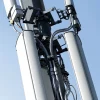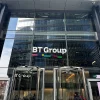Ofcom UK Reviews the Cost of Calling Some Telephone Services (118 etc.)
The telecoms regulator, Ofcom, has today opened a new review into the cost of calling some telephone services, which follows recent concerns over the high prices and unfair practices that consumers may sometime face when contacting 118 (directory enquiries) or 070 numbers etc.
The Call Cost Review will aim to “ensure that prices are transparent and fair to consumers,” with the regulator noting that some people can be charged up to £9 a minute or more when contacting 118 numbers. Similarly calling 070 numbers, which can be confused with mobile contacts, may cost up to £3.40 a minute and at those rates your bill for even a short call could quickly take a turn for the extortionate.
Ofcoms Statement
118 numbers were introduced by Oftel, the previous telecoms regulator, in 2003. The directory enquiry market, then run entirely by BT, was opened up to competition and a wide range of competing 118 services were launched. Today there are more than 400 directory enquiry services offering a variety of options and prices, with call costs ranging from 35p per call to £9 and higher.
Ofcom has been monitoring the costs of the more expensive services, which have risen significantly in recent months as fewer people use these services.
070 numbers were introduced by Oftel in 1995. They are designed to be used as a ‘follow me’ service, where calls are diverted from one number to another, so that the person being called can keep their own number private, and remain contactable wherever they go. Small businesses and sole traders often use them to make it easy to manage calls.
070 numbers are also sold legitimately on a one-off basis – for example, when someone is buying or selling a car, and does not wish to advertise their private mobile or fixed line number on a website or magazine.
However, 070 numbers may be confused with mobile phone numbers, which also start ‘07’. Ofcom is concerned about evidence of scams designed to make consumers believe they are calling a mobile number. When people call the 070 number back, they are actually dialling a service costing up to £3.40 a minute.
Ofcom has already done some work in this area and in 2015 they made the cost of calling service numbers – such as 118 – clearer for consumers. As a result phone companies are required to standardise the cost of calling these numbers, and make it clear on bills and in contracts.
Advertisement
Similarly companies who provide the service (such as directory enquiries) must state their charge clearly wherever their number is promoted. Directory enquiry providers must also follow the Code of Practice issued by the Phone-paid Services Authority, which regulates premium-rate numbers. This requires providers to be upfront about the service they offer and the cost, and treat consumers fairly.
Mark is a professional technology writer, IT consultant and computer engineer from Dorset (England), he also founded ISPreview in 1999 and enjoys analysing the latest telecoms and broadband developments. Find me on X (Twitter), Mastodon, Facebook, BlueSky, Threads.net and Linkedin.
« ISPA – Pick Your UK Internet Hero and Villain for 2017

















































Comments are closed